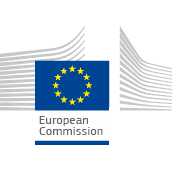
Support dialogue and exchange of best practice in fostering tolerance and mutual respect
Date de clôture : 5 janv. 2017
APPEL À PROJET CLÔTURÉ
APPEL À PROJET CLÔTURÉ
Affaires sociales et inclusion
Personnes defavorisées
Citoyenneté
Égalité des sexes
Groupes minoritaires
Justice
Programme Droits, Égalité et Citoyenneté
Topic Description
Scope:1. Priorities and activities to be funded
1.1. Priorities
Dialogue and exchange of best practice will assist Member States and national practitioners in fostering tolerance and mutual respect including through the correct and full implementation of the provisions of the EU Framework Decision on combatting certain forms and expressions of racism and xenophobia by means of criminal law, and in developing tools and practices to effectively prevent and combat bias-motivated crimes. Increased support in these actions also represents a follow up to the conclusions of the Annual Colloquium on Fundamental Rights of 1-2 October 2015 and reflects relevant priorities identified in the European Agenda on Security and in the conclusions of the Justice Ministers discussion on the justice response to the migration crisis, held at the Justice and Home Affairs Council of 8-9 October 2015.
The priorities of this call for proposals are:
- Grassroots projects on preventing and combating Antisemitism and anti-Muslim hatred and intolerance (as a follow up of the 2015 Colloquium on Fundamental Rights event);
- projects on preventing and combating homophobia and transphobia;
- projects promoting the development of tools and practices to prevent (counter-narratives), monitor and combat online hate speech, including but not limited to means of criminal law (as a follow up of the Colloquium);
- Projects to create better understanding between communities, including religious communities, and prevent and combat racism and xenophobia through interreligious and intercultural activities.
1.2. Description of the activities to be funded under this topic
This call will fund activities on:
- mutual learning on tolerance, respect and non-discrimination, exchange of good practices and strengthened cooperation between key actors, including representatives of the communities;
- development of monitoring and transparency tools on hate crime and hate speech. In particular, projects should focus on developing tools to report and monitor online hate speech and/or enhancing transparency of the notifications made by users to the Internet companies and social media platforms will be a priority. Priority should be given to languages of the countries where the extent of the problem is considerable but no solutions are being genuinely developed;
- capacity building and training activities for key stakeholders, including representatives of communities and youngsters;
- dissemination, awareness raising activities and campaigns (e.g. production of counter and alternative narratives) aimed at preventing Antisemitism, anti-Muslim hatred, xenophobic or anti-migrant sentiment, homophobia and transphobia and other related forms of intolerance.
- supporting community leaders and local authorities to fight against racism, xenophobia and other related intolerance through community building, creation of networks, interreligious and intercultural dialogue, initiatives serving the community and boosting self-esteem, creativity and a sense of belonging, breaking of stereotypes and the developing of counter-narratives.
General requirements:
The following types of activities will not be funded by the Commission:
- activities supporting individual political parties;
- provision of financial support to third parties;
- legal actions before national or international courts regardless of their grounds or objectives.
Lien officiel : Disponible pour les utilisateurs enregistrés




S'il vous plaît Se connecter pour voir cette section